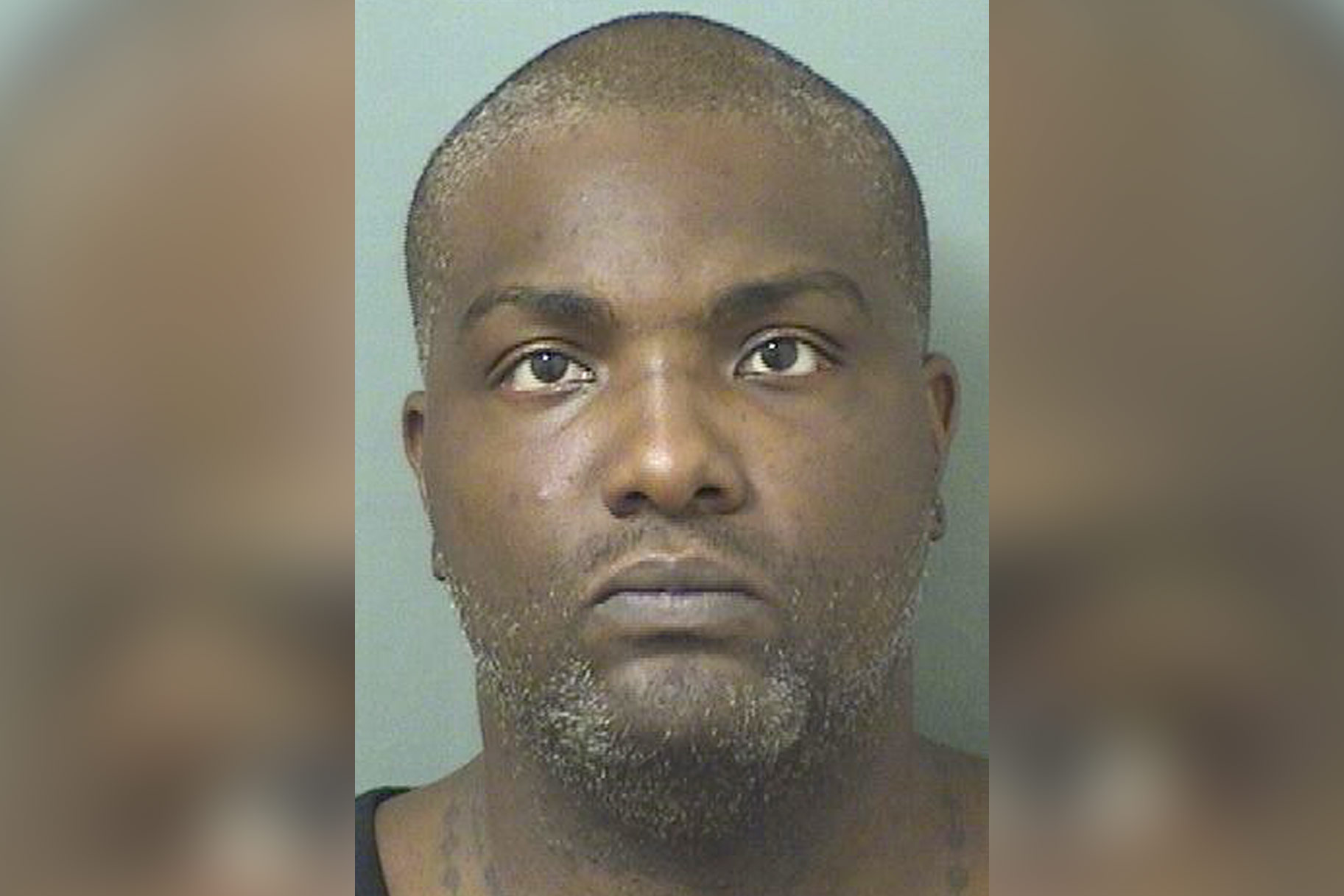Create a free profile to get unlimited access to exclusive videos, breaking news, sweepstakes, and more!
Best Friend Of Serial Killer Cries As Prosecutor Aims For Death Penalty In Sentencing Hearing
Jason Caldwell, serial killer Robert Hayes' best friend since college, testified that he has never seen his friend angry.

The sentencing phase for a one-time Florida cheerleader who is now a convicted serial killer began on Monday, as prosecutors sought the death penalty.
A jury on Tuesday found Robert Tyrone Hayes, 39, guilty of first-degree murder for killing three women in Volusia County — which is northeast of Orlando — in 2005 and 2006.
The prosecution is seeking the death penalty for Hayes, who killed the three victims in Volusia County while studying at Bethune-Cookman University in Daytona Beach. He was majoring in criminal justice and performing as a cheerleader at the time of the murders.
Prosecutor Andrew Urbanak told the jury on Monday that Hayes' crimes warranted the death penalty because he killed with coldness and premeditation.
"Each of these murders were basically on a script," he said.
He warned jurors that the defense will claim that Hayes has brain damage, though Urbanak said that the state's expert found such damage. He also cautioned jurors that Hayes' loved ones would speak about Hayes' character.
Hayes' cousin Denise Williams then testified that she knew Hayes as a cook who would always bring food over to her house.
Jason Caldwell, Hayes' best friend since their college days at Bethune-Cookman, testified that the defendant helped him get comfortable and settled on campus.
"He took that time to help me out," he said, adding that Hayes also lent him clothing to wear back then.
"When I say best friend, I mean that is someone I can depend on at any time or day," Caldwell said before choking up. He said that he has never seen the convicted serial killer be filled with anger and recalled how Hayes was there for him and his family over the years.
Prosecutors asked Hayes'd character witnesses if they'd ever noticed him suffering from mental health problems; nearly all said no.
Hayes was arrested in a fourth murder in 2019 after investigators grabbed a cigarette he flicked into a beer can and compared it to DNA found at the scene of the murder of Rachel Bey, 32. Bey was found sexually abused and strangled with a broken jaw and teeth on the side of the road in Riviera Beach, Florida — about 80 miles north of Miami — in 2016. He still faces a possible trial for the slaying of Bey in Palm Beach County, where he was working as a chef at the time of the murders, according to Miami CBS affiliate WFOR.
From there, he was linked to the 2005 and 2006 murders of Laquetta Gunther, 45, Julie Green, 34, and Iwana Patton, 35, through DNA and genetic genealogy. Gunther was found between an auto parts store and a mostly empty utility building around Christmas 2005, CBS News reports. Green’s body was found less than a month later on a dirt road at a construction site. One month later, Patton was also found along a dirt road. All were discovered naked and lying face down. All were shot with the same gun, according to WFOR.
It was Hayes' senior year at college, according to Cincinnati radio station WKRC.
“It was a single gunshot wound to the back of the head in two of the cases, front of the head in one of the cases, in a remote location where no identification is found, and they all happened in — as I’m going to repeat throughout this closing argument — strikingly similar fashion,” Prosecutor Andrew Urbanak stated during closing arguments last week, Law&Crime reports. “I submit to you from those circumstances alone this was a premeditated killing. The location speaks to it. The way the victims were left speaks to it. The way the murder was inflicted speaks to it.”
Prosecutors said that Hayes killed Gunther, Green and Patton after they got into his car, Orlando CBS affiliate WKMG reported last week. Hayes’ defense admitted that he had sex with his victims — thereby accounting for the presence of his DNA — but denied killing them, WESH reported.
Gunther, Green and Patton all were said to have had connections with sex work — though Patton's niece, who also went to Bethune-Cookman around the same time as Hayes, denied her aunt was a sex worker in a 2019 interview with WKMG. Prosecutors highlighted during the trial that Hayes preyed on the vulnerable, and the women's murders struck intense fear in the sex work community at the time.


























